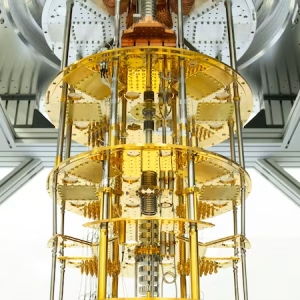In a major milestone for the UAE’s transport infrastructure, Etihad Rail has announced that it will launch its passenger services by the end of 2025. This highly anticipated service is set to transform the way residents and visitors travel across the country, connecting key cities and reducing travel time significantly.
The national railway network, which has been under construction for several years, will soon allow passengers to travel between cities like Abu Dhabi, Dubai, and Fujairah. This is expected to bring a new level of convenience and efficiency to the UAE’s transport system.
With travel times between major cities reduced by up to 50%, the Etihad Rail project promises to make long-distance travel more accessible, affordable, and eco-friendly. But what does this mean for UAE residents and the country’s overall development? Let’s dive deeper into the details of this exciting announcement.

A New Era for Passenger Travel
Etihad Rail has been operational for freight transport for some time, but the announcement of passenger services is a game-changer. The railway network will not only connect some of the UAE’s largest cities but will also offer travelers a faster and more sustainable mode of transportation.
Traveling by train has long been a popular choice in many parts of the world due to its efficiency and environmental benefits. The Etihad Rail service is expected to alleviate the growing traffic congestion on the country’s roads and reduce the carbon footprint associated with travel. With new high-speed trains, passengers can expect smooth, fast, and comfortable journeys.
Connecting Major Cities

The Etihad Rail network will provide vital connections between key urban centers. For example, the journey between Abu Dhabi and Dubai, which currently takes about an hour and a half by car, will be shortened significantly, making it a practical option for both residents and tourists. The network will also connect Fujairah to the rest of the country, offering a quicker alternative to road travel.
This is not just about reducing travel time; it’s about creating a more connected and cohesive nation. The convenience of having major cities so easily accessible will likely encourage more business, tourism, and economic opportunities, while also boosting the UAE’s status as a global hub for innovation and sustainable infrastructure.
Environmental Benefits of the Railway
The UAE has long been committed to sustainability, and the introduction of passenger trains is a natural step in that direction. Trains are widely regarded as a more energy-efficient form of transportation compared to cars and planes. By reducing the reliance on road travel, Etihad Rail is expected to help reduce traffic congestion, lower emissions, and contribute to the UAE’s sustainability goals.
Additionally, Etihad Rail will be powered by electricity, which is expected to come from renewable sources. This will further enhance the eco-friendly nature of the service, aligning with the UAE’s vision to reduce its carbon footprint and promote green energy solutions.
What Passengers Can Expect
While the final details of the passenger trains are still being finalized, some aspects of the service have already been confirmed. The trains will be equipped with state-of-the-art facilities, ensuring that passengers enjoy a comfortable journey. Expect spacious seating, air conditioning, onboard Wi-Fi, and modern amenities designed to make your travel experience pleasant and stress-free.
The trains will be running on a scheduled timetable, providing frequent services throughout the day. This flexibility will make it easy for commuters, tourists, and business travelers to plan their trips according to their needs.
In addition, tickets will be priced competitively, offering a cost-effective alternative to driving or flying. The service will be designed to cater to a wide range of travelers, making it an accessible choice for everyone.
Economic Impact of Etihad Rail

The introduction of Etihad Rail’s passenger service is expected to have a positive impact on the UAE economy. By improving connectivity between key cities, the railway network will facilitate trade, tourism, and business. This could lead to increased investment in industries such as hospitality, real estate, and retail.
Moreover, the construction of the railway has already created thousands of jobs, and the launch of passenger services is expected to create even more employment opportunities. This will further support the UAE’s economic diversification efforts and help reduce reliance on oil revenue.
Challenges and Future Prospects
While the launch of Etihad Rail’s passenger services is an exciting development, there are still challenges to be addressed. As with any large infrastructure project, the railway system will need to be constantly maintained and upgraded to meet the growing demand for transportation.
The UAE government has committed to continuously improving the network to ensure that it can handle future growth. This includes expanding the network to more cities and integrating it with other modes of transport, such as buses and taxis, to create a seamless travel experience.
Looking ahead, Etihad Rail could also play a significant role in the wider GCC region. With the potential to connect the UAE to neighboring countries, the network could become a vital part of the region’s transport infrastructure, promoting greater regional integration and economic cooperation.
What This Means for the UAE’s Future
The launch of Etihad Rail’s passenger services is a clear sign of the UAE’s commitment to modernization and sustainable development. By investing in state-of-the-art infrastructure, the country is positioning itself as a global leader in innovation and sustainability. The railway system will help ease congestion, reduce emissions, and provide a faster, more efficient mode of travel for residents and visitors alike.
As the UAE continues to develop its transportation network, it’s likely that we will see more groundbreaking projects that make life easier, greener, and more connected for everyone in the country. The launch of Etihad Rail by the end of 2025 marks the beginning of a new chapter in the country’s transportation history and promises a brighter, more connected future for all.
Also read: New UAE Platform Revolutionizes Food Security and Local Supply Chains












